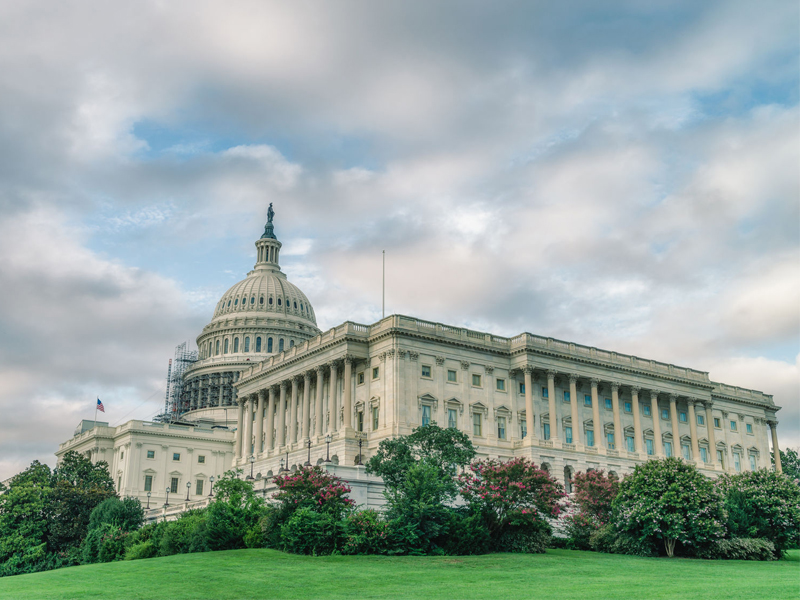
The U.S. election remains undecided and will likely remain so for days yet. Despite some overnight jitters, markets are largely taking the uncertainty in stride — for now.
“As expected, it was a wild and crazy night and the ultimate conclusion to the election is still up in the air,” said Peter Hardy, vice-president and senior client portfolio manager with Kansas City, Mo.-based American Century Investment Services Inc. “The markets have absorbed what is going on with the election pretty well.”
At the open on Nov. 4, the S&P/TSX composite shot up initially, only to fall below yesterday’s close before climbing above 16,000 by midday. The index closed just under 16,000, rising just 0.38% above yesterday.
In the U.S., meanwhile, the S&P 500 opened positively and continued to climb, hitting 3,467.94 points by noon. The S&P 500 closed at 3,443.49, up 2.21% from yesterday.
The longer the election uncertainty continues, Hardy said, the greater chance of a “risk-off” market scenario like the one that happened during the Florida recount in the 2000 election.
As of 3:35 pm on Nov. 4, the Associated Press had called 248 electoral college votes for Democratic candidate Joe Biden and 214 electoral college votes for President Donald Trump. It takes 270 to win the presidency.
“From a handicapping perspective, it’s currently advantage Biden, but I wouldn’t bet the farm on either side of this one,” said Hardy, speaking just before noon on Tuesday. “But the likelihood of a blue sweep is off the table.”
If Biden wins the presidency and the Republicans keep the Senate, any economic stimulus package will likely be more modest than it would have been if Democrats controlled the Senate.
From Canada’s perspective, the size of that stimulus package matters, as it’s likely the U.S. will need to buy goods such as timber and technology products from its northern neighbour.
“From a Canadian investor perspective, you want to pay close attention to [a package] because we are talking possibly trillions of dollars. It’s a big chunk of money,” said Jonathan Lemco, principal and senior financial analyst, with Malvern, Penn.-based Vanguard Group. He suggests examining the industries to which the package is targeted.
In terms of taxes, a Trump presidency and Republican Senate would likely mean a continuation of tax cuts, but a Biden presidency with a Republican Congress would signal the possibility of tax increases — although perhaps not as high as Biden campaigned on.
“There was potential change on the table both from a corporate and individual tax perspective. Those areas would be less likely to see as strong tax increases as were expected going into the election,” Hardy said. “Taxes are the greatest areas of impact to our valuations due to the election in that the free cash flow of the businesses we follow is altered based on their tax rates.”
Lemco said another big post-election concern for Canada is whether vacant senior bureaucratic roles in the U.S. government will be filled.
“Canadian diplomats who I talk to complain they have nobody to talk to [in government] half the time,” Lemco said. “That’s a big deal whether its finance, it’s environment, energy policy — all kinds of things.”
Another area to watch if Biden maintains his electoral college lead is the energy sector. Specifically, a potential clash between a Biden administration and the Trudeau government could occur over the Keystone XL pipeline: the Canadian government favours the project while Biden has expressed opposition.
“You have a fundamental difference between the two countries on this one [that is] yet to be resolved,” Lemco said. “If it is a Republican-controlled Senate but a Joe Biden presidency, you’ll get more moderate policy in general and it’ll be a very slow go — but [they’re unlikely to] kill the Keystone XL pipeline. From a Canadian perspective, that is a very big deal.”